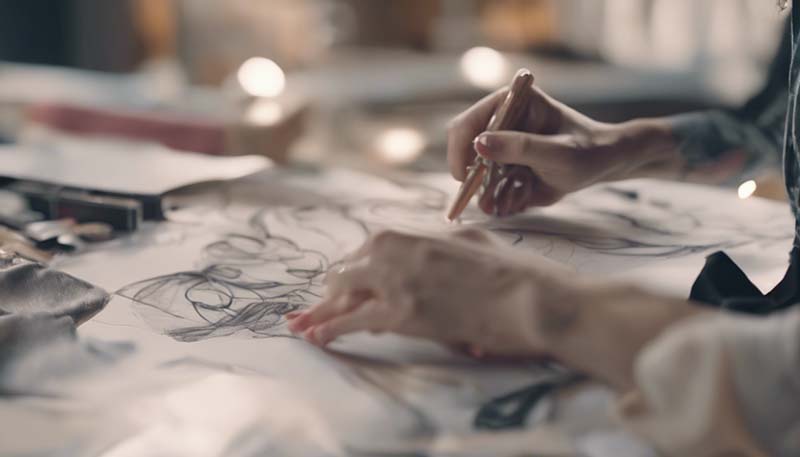From Sketch to Silk: The Fashion Design Process
Fashion design is a creative and exciting field that involves designing clothes and accessories. It requires a lot of skill, creativity, and technical knowledge. In this article, we will explore the different stages of the fashion design process, from sketching to creating the final product.
The Inspiration
The fashion design process begins with the inspiration. Designers draw inspiration from various sources such as nature, art, culture, and current events. They also research fashion trends and analyze what is popular in the market. This helps them to come up with unique and innovative ideas for their designs.
The Sketch
Once the designer has a clear idea of what they want to create, they start sketching their designs. Sketching is an essential part of the fashion design process as it allows the designer to visualize their ideas and make necessary adjustments before creating the final product.
The sketch should include all the details of the design, such as the silhouette, fabric, colors, and accessories. It should also show the front, back, and side views of the garment. Designers often use sketching software or traditional sketching tools like pencils, pens, and markers to create their sketches.
Advertisement
The Design Plan
After sketching, the designer creates a design plan. This plan outlines the steps involved in creating the final product, including the materials needed, the production timeline, and the budget. The design plan also includes details about the target market, pricing, and marketing strategies.
The Prototype
Once the design plan is in place, the designer creates a prototype. A prototype is a sample garment that allows the designer to test their design and make any necessary adjustments. It is usually made using inexpensive materials and basic sewing techniques.
The prototype is used to check the fit, drape, and overall look of the garment. Designers make any necessary changes to the design based on the feedback they receive from their team and potential customers. This process may involve multiple iterations until the final design is perfect.
Fabric Selection
Choosing the right fabric is crucial in the fashion design process. Designers select fabrics based on the design, target market, and budget. They consider factors such as texture, weight, color, and durability when selecting fabrics.
Designers often work with fabric suppliers to source the materials they need. They may also collaborate with textile designers to create custom fabrics for their designs.
Pattern Making
Once the fabric is selected, the designer creates a pattern for the garment. A pattern is a template that shows the shape and size of each piece of the garment. It is used to cut the fabric accurately and ensure that the garment fits properly.
Pattern making is a complex process that requires a deep understanding of the human body and garment construction. Designers often work with pattern makers to create the patterns for their designs.
Sewing and Construction
With the pattern in place, the designer can start sewing and constructing the garment. This involves cutting the fabric according to the pattern, sewing the pieces together, and adding any embellishments or accessories.
Designers may work with a team of skilled seamstresses and tailors to create the final product. They ensure that the garment is constructed to the highest quality standards and meets the design specifications.
Quality Control and Fitting
Once the garment is constructed, the designer conducts a quality control check to ensure that it meets their standards. They check for any defects, loose threads, or inconsistencies in the stitching.

The designer also conducts a fitting session to ensure that the garment fits properly on the model. They make any necessary adjustments to the design based on the feedback they receive from the model.
Marketing and Launch
After the final product is ready, the designer focuses on marketing and launching the collection. They create lookbooks, fashion shows, and social media campaigns to promote their designs.
Designers also collaborate with retailers, boutiques, and e-commerce platforms to sell their designs. They may also work with celebrities and influencers to increase brand visibility and attract potential customers.
Conclusion
The fashion design process is a complex and creative journey that involves a lot of hard work, dedication, and passion. From sketching to creating the final product, every step is crucial in bringing the designer's vision to life.
As a designer, it's essential to stay updated with the latest fashion trends, collaborate with other professionals, and continuously learn and improve your skills. With the right approach and mindset, you can create beautiful and innovative designs that resonate with your target audience.
So, are you ready to embark on your fashion design journey? Start sketching, and who knows, you might just create the next big fashion trend!
Leave a Reply